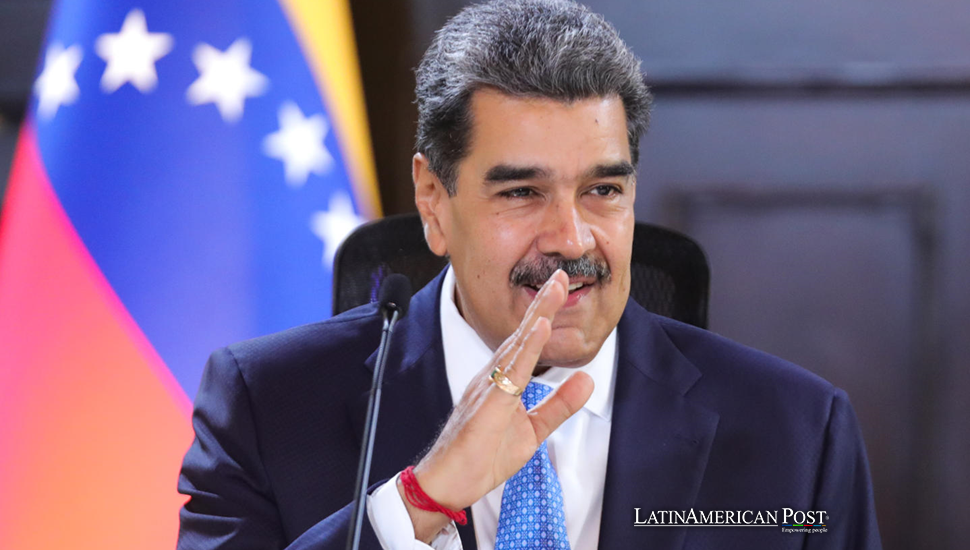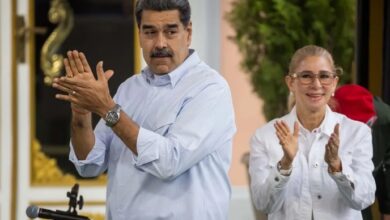Venezuela’s Endless Semantics Demand Real Change Over Empty Words

Once again, the United States has shown its support for Venezuela’s opposition, this time by naming Edmundo Gonzalez as the “president-elect.” However, this action seems to be a recurring scenario. These symbolic actions, while they may seem to be a step forward, do not address the actual issues that are plaguing Venezuela’s democracy and its citizens. The problems persist, and the need for real change becomes more apparent.
Words Without Action: A Familiar Pattern
Washington often uses specific words to show dislike for Nicolás Maduro’s government. In 2019, the U.S., under Trump, called Juan Guaidó, the temporary leader of Venezuela. Some saw this as a strong push for democracy. But it ended up being talk, causing the Venezuelan opposition to become weak and upset.
Now, Secretary of State Antony Blinken calls Gonzalez “president-elect.” This might repeat past mistakes꞉: big words, small actions. Some people think this sounds like progress, but these words do not challenge Maduro’s stronghold on power.
As the opposition, led by Gonzalez, remains in exile, Maduro’s grip on power only strengthens. The Venezuelan Supreme Court, a staunch supporter of Maduro, dismisses any claims of unfair elections. Gonzalez faces the risk of arrest if he returns. In the absence of a practical plan, Blinken’s words seem to be nothing more than empty drama. What is needed is not just rhetoric, but a well-thought-out strategy for real change.
The Cycle of Symbolism Over Substance
The U.S. and its allies have a habit of using symbolic actions to address Venezuela’s political issues. They often recognize opposition leaders, impose sanctions, and criticize elections they deem as fake. However, these moves, while they may seem significant, have not led to the real change that Venezuela needs. It’s time to move beyond symbolism and focus on substantive action.
They recognized Guaidó in 2019. But years passed, and nothing changed. Maduro stayed in power, and the opposition’s credibility weakened. Sanctions from other countries did not remove Maduro. They only worsened the hardship for regular Venezuelans, causing more human suffering without solving the real problems. These actions hurt people—they really hurt them.
The latest move by Blinken risks alienating ordinary Venezuelans further. While symbolic gestures may bolster the morale of opposition leaders, they do little to alleviate the struggles of citizens living through hyperinflation, food insecurity, and widespread political repression. It’s time to recognize that semantics are not a substitute for strategy.
What Does Real Action Look Like?
If the U.S. and other democratic nations genuinely want to support change in Venezuela, they need to move beyond empty rhetoric. Real action requires a multifaceted approach:
Strengthen Civil Society: Empowering grassroots organizations within Venezuela is crucial. These groups, often operating under immense pressure, play a key role in resisting authoritarianism and building the foundations of a democratic society. Funding and resources should prioritize their survival and growth.
Shift Focus from Sanctions to Engagement: Blanket sanctions have hurt ordinary Venezuelans more than Maduro’s inner circle. Targeted economic measures and humanitarian assistance can reduce collateral damage while keeping pressure on the regime. Diplomacy, however unpalatable, must be part of the solution.
Regional Collaboration: Venezuela’s neighbors, particularly Colombia and Brazil, must play a more significant role in resolving the crisis. With the support of international organizations like the United Nations, regional coalitions can create the pressure and legitimacy needed for meaningful negotiations.
Accountability for Maduro’s Regime: Symbolic recognitions of opposition leaders mean little if the international community doesn’t hold Maduro accountable for human rights abuses. Strengthening investigations into crimes against humanity through international bodies could shift the balance.
The Price of Inaction
Venezuela’s crisis is not new. Its urgency is pressing. Millions of people have left Venezuela, creating one of the world’s most significant migration challenges. Those who remain endure broken infrastructure, widespread poverty, and limited freedoms. The situation demands immediate and effective action.
The international community, especially the U.S., risks losing trust by focusing only on symbolic actions. Venezuelans have seen this situation many times, and many people are now losing hope in outside help. The opposition also needs help. It cannot support leaders who are famous abroad but have no power at home.
Gonzalez gets ready to go back to Venezuela. He faces enormous challenges. People know him as “president-elect.” This could be a diplomatic success. However, it might be another example of symbolic politics in Venezuela’s history without a clear plan to change this title into real power.
Beyond Semantics: A Call for Bold Strategies
The time for empty declarations has long passed. Venezuela’s future should not hinge on words and symbolic actions that skirt around Maduro’s oppressive rule. Real change demands bold plans and innovative ideas. It’s time to confront the crisis head-on.
Also read: Learning Cannot Justify Minor Sexualization in Latin Music Lyrics
Until the international community moves beyond words to take meaningful action, Venezuela’s people will remain caught in a cycle of hope and disappointment. They deserve better than semantics—they deserve real, effective solutions.




